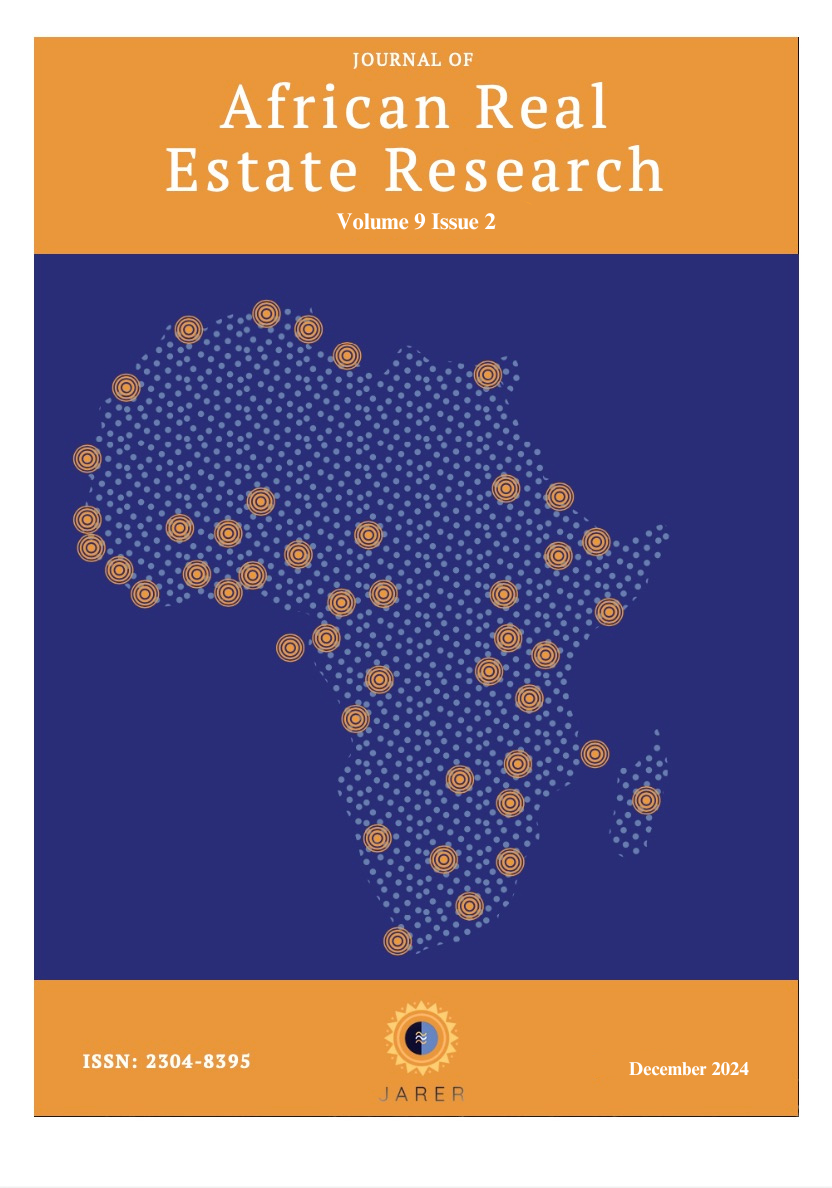Property Supply, Economic Factors and House Prices in Nairobi Kenya
DOI:
https://doi.org/10.15641/jarer.v9i2.1457Abstract
Residential real estate is an important asset class for both institutional and individual investors. The housing bubble in the US led to a global financial crisis in 2007 – 2008. As such, understanding the factors that influence property prices is central to the investment process and portfolio management. The objective of the paper was to first construct a Nairobi house price index and then determine the relationship among economic factors, property supply, and house prices. The study period was ten years (2011Q1 to 2020Q4). Autoregressive Distributed Lag (ARDL) model was adopted to estimate long run and short run relationships. The Nairobi real estate price index was developed using hedonic model based on the data collected on actual selling price and characteristics of a sample of houses in Nairobi spanning ten years. The paper finds that GDP and inflation have significant positive long run effect on house prices. Property supply has a significant negative long run effect on real estate prices. However, interest rates do not have significant effect on house prices. In the short run however, GDP had a significant negative effect on prices. The speed of adjustments towards equilibrium relationship was 71.9%. The real estate market seems to be efficient despite its illiquid nature. The paper contributes to knowledge through its construction of house price index in Nairobi. Also, it included property supply a departure from past studies. The findings may have implications for investors, banks, regulators of securities and policy makers. The government of Kenya may be motivated to commission an official house price index.
Downloads

Downloads
Published
How to Cite
Issue
Section
License
Copyright (c) 2024 Dan Chirchir, Prof. Mirie, Prof. Iraya

This work is licensed under a Creative Commons Attribution 4.0 International License.



